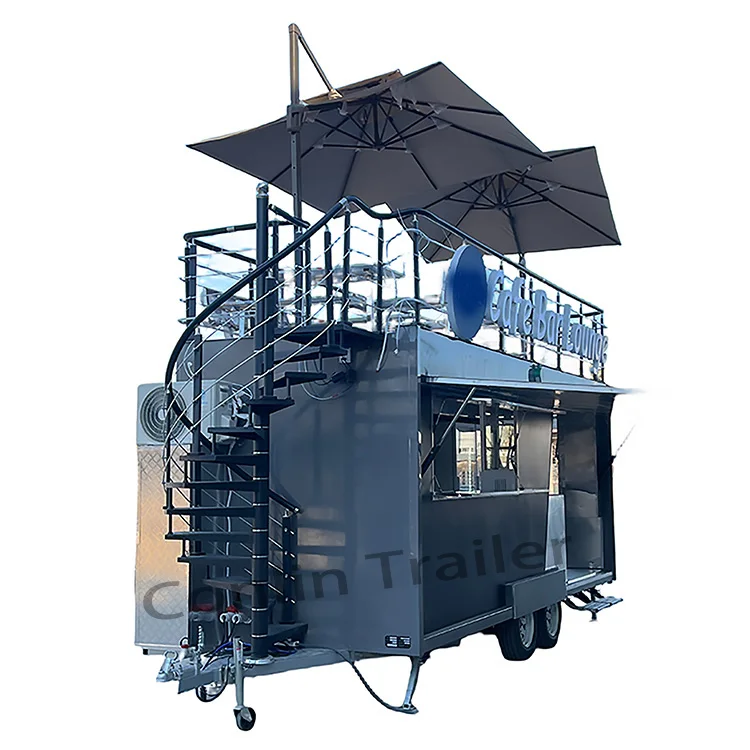
Decker Trucks for Sale: Your Comprehensive Guide to Maximizing Haulage Efficiency
In the world of commercial transport, efficiency is king. Businesses constantly seek ways to maximize payload, reduce trips, and ultimately, lower operational costs. This pursuit often leads them to specialized vehicles, and among the most effective for certain industries are decker trucks. Often referred to as multi-level transporters, double-deckers, or specialized car/livestock haulers, these innovative vehicles allow for the simultaneous transport of significantly more cargo than conventional single-level trailers. Whether you’re in the automotive logistics sector, livestock transport, or need to optimize space for general freight, understanding the market for decker trucks for sale is crucial.
This comprehensive guide will delve into everything you need to know about acquiring a decker truck, from defining their unique advantages to navigating the buying process, ensuring you make an informed and strategic investment for your business.
What Are Decker Trucks? Understanding the Advantage
At its core, a decker truck, or more accurately, a decker trailer pulled by a truck, is a commercial vehicle designed with multiple loading levels. Unlike a standard flatbed or box trailer, these units utilize vertical space to significantly increase carrying capacity. This multi-level design can be fixed, offering permanent tiers, or adjustable, employing hydraulic systems to raise and lower decks to accommodate varying cargo sizes and loading requirements.
The primary types of decker trucks you’ll encounter for sale include:
- Car Haulers (Auto Transporters): Perhaps the most recognizable form, these trailers are specifically designed with ramps and adjustable decks to safely load and transport multiple cars, SUVs, or even light trucks on a single journey. Their intricate design allows for precise positioning to maximize vehicle count.
- Livestock Transporters: These trailers are built with multiple levels to carry animals like cattle, hogs, or sheep, often incorporating specialized ventilation, watering systems, and non-slip flooring to ensure humane and safe transport.
- General Cargo Decker Trailers: Less common but highly versatile, some decker trailers feature adjustable internal decks that can be configured to create multiple levels for pallets or other non-uniform cargo, optimizing space utilization for lighter, voluminous goods.
The undeniable advantage of decker trucks lies in their ability to significantly increase payload per trip. This translates directly into:
- Reduced Fuel Costs: Fewer trips mean less fuel consumed overall for the same volume of goods.
- Increased Efficiency: Drivers can transport more in less time, improving delivery schedules and turnaround times.
- Lower Labor Costs: Fewer driver hours are needed to move the same amount of freight.
- Competitive Edge: The ability to offer more competitive pricing due to optimized logistics.
For businesses where the volume of goods or animals transported is high and consistent, a decker truck is not just an option; it’s a strategic necessity for maximizing profitability.
Key Considerations When Buying Decker Trucks
Purchasing a decker truck is a significant investment that requires careful consideration of several factors to ensure it meets your specific operational needs and budget.
- Purpose and Application: This is paramount. Are you transporting compact cars, large SUVs, or a mix? Are you moving cattle, hogs, or delicate show horses? The type of cargo dictates the specific design, deck strength, and features required. A car hauler, for instance, will have different ramp configurations and tie-down points than a livestock trailer.
- Deck Configuration (Fixed vs. Adjustable):
- Fixed Decks: Simpler in design, often lighter, and require less maintenance. Best for highly uniform cargo (e.g., specific car models) where flexibility isn’t critical.
- Adjustable Decks: Offer immense versatility, allowing you to reconfigure the levels to accommodate different vehicle sizes or varying animal heights. They come with hydraulic systems, which require more maintenance but provide unmatched flexibility.
- Payload Capacity and Dimensions: Understand the Gross Vehicle Weight Rating (GVWR) and Gross Combination Weight Rating (GCWR) to ensure the truck can legally and safely carry your intended load. Crucially, consider the external dimensions – particularly height. Double-deckers are inherently taller, and you must confirm they can clear bridges, tunnels, and facility entrances on your common routes. Length and width also matter for maneuverability and legal limits.
- Condition (New vs. Used):
- New Decker Trucks: Offer the latest technology, full warranties, and no prior wear and tear. They come at a premium price but provide peace of mind and often better fuel efficiency with modern engines.
- Used Decker Trucks: A more budget-friendly option, allowing businesses to acquire specialized equipment at a lower upfront cost. However, they require thorough inspection, careful review of maintenance records, and an understanding of their remaining lifespan.
- Maintenance History (for Used Trucks): For a used decker truck, a detailed service history is invaluable. Look for evidence of regular maintenance, especially concerning the hydraulic systems (if applicable), brakes, tires, and structural integrity of the decks and ramps.
- Engine and Transmission: The reliability and fuel efficiency of the truck’s powertrain are critical for long-term operational costs. Research reputable engine manufacturers and transmission types known for durability in heavy-duty applications.
- Special Features:
- For Car Haulers: Winches, robust tie-downs, non-slip surfaces, and lighting for night loading.
- For Livestock Transporters: Ventilation fans, water troughs, easy-clean interiors, non-slip ramps, and secure partitioning.
- Safety Features: ABS brakes, stability control, advanced driver-assistance systems (ADAS) can enhance safety and potentially lower insurance premiums.
Where to Find Decker Trucks for Sale
The market for decker trucks, while specialized, offers several avenues for procurement.
- Commercial Truck Dealerships: Both new and used truck dealerships often stock a range of commercial vehicles, including specialized trailers. Dealerships can offer financing options, warranties (for new trucks), and after-sales service.
- Online Marketplaces and Auction Sites:
- Specialized Truck Websites: Sites like TruckPaper.com, CommercialTruckTrader.com, and MyLittleSalesman.com are dedicated to commercial vehicle listings and are excellent resources for finding specific models.
- Heavy Equipment Auctioneers: Ritchie Bros. Auctioneers, IronPlanet, and GovPlanet frequently feature commercial trucks and trailers, including decker units. Auctions can offer competitive pricing but require quick decision-making and often "as-is" purchases.
- General Classifieds: While less targeted, platforms like eBay Motors or even local classifieds can sometimes yield hidden gems from private sellers.
- Manufacturer Websites: For new decker trailers, checking directly with manufacturers like Cottrell, Boydstun, or Kentucky Trailer (for car haulers) or Wilson Trailer, Merritt Trailers (for livestock) can provide direct purchasing options and customization.
- Industry Networks and Brokers: Networking within your specific industry (e.g., automotive transport associations, livestock hauling forums) can lead to private sales or connections with brokers specializing in these types of vehicles.
The Buying Process: A Step-by-Step Guide
Once you’ve identified potential decker trucks, follow a structured buying process to ensure a sound investment.
- Define Your Exact Needs and Budget: Before looking, clearly outline the type of cargo, volume, routes, and maximum budget. Don’t forget to factor in ongoing operational costs like fuel, maintenance, and insurance.
- Research and Shortlist: Compare models, features, and prices from various sellers. Read reviews, look up common issues, and understand the market value for the types of decker trucks you’re considering.
- Initial Contact and Information Gathering: Reach out to sellers. Ask for detailed specifications, more photos, and maintenance records. Don’t hesitate to ask specific questions about the truck’s history, any past repairs, and reason for selling.
- Thorough Inspection (Critical!):
- Physical Inspection: Examine the frame for cracks or rust, especially at stress points. Check the condition of the decks, ramps, and any hydraulic components. Look for signs of wear, damage, or poor repairs. Inspect tires, brakes, lighting, and coupling mechanisms.
- Mechanical Inspection: If possible, have a qualified heavy-duty mechanic perform a pre-purchase inspection. They can identify issues with the engine, transmission, suspension, and hydraulic systems that might not be obvious.
- Test Drive: Take the truck for a test drive, ideally with some weight if safe and permissible. Pay attention to how it handles, brakes, shifts, and the responsiveness of any hydraulic systems. Listen for unusual noises.
- Review Documentation: Verify the title is clear and matches the VIN. Review all available service records, maintenance logs, and any accident reports. This due diligence is crucial, especially for used vehicles.
- Negotiation: Be prepared to negotiate on price. Research typical market values and highlight any issues found during inspection to justify a lower offer.
- Financing and Insurance: Secure your financing well in advance. Explore options from traditional banks, equipment lenders, or manufacturer financing programs. Simultaneously, obtain insurance quotes, as premiums for specialized vehicles can vary significantly.
- Legal and Regulatory Compliance: Ensure the truck complies with all federal, state, and local regulations regarding weight, dimensions, safety features, and licensing for commercial vehicles. Understand any specific permits required for your cargo (e.g., livestock permits).
Maintaining Your Decker Truck for Longevity
Once acquired, proper maintenance is paramount to extending the lifespan and ensuring the safe operation of your decker truck.
- Regular Inspections: Implement rigorous pre-trip and post-trip inspections, focusing on tires, brakes, lights, fluid levels, and the integrity of the decks and ramps.
- Scheduled Preventative Maintenance: Adhere strictly to the manufacturer’s recommended maintenance schedule for engine oil changes, fluid checks, filter replacements, and lubrication.
- Hydraulic System Care: For adjustable deckers, the hydraulic system is critical. Regularly check fluid levels, hoses for leaks, and cylinders for proper function. Promptly address any signs of sluggishness or unusual noises.
- Structural Integrity: Continuously inspect the frame, crossmembers, decks, and ramps for cracks, rust, or damage. Repair any issues promptly to prevent catastrophic failure.
- Cleaning: Regular cleaning, especially for livestock trailers, is essential for hygiene and preventing corrosion.
Price Table: Estimated Costs for Decker Trucks for Sale
The price of a decker truck varies significantly based on type, condition (new vs. used), features, and manufacturer. Here’s a general estimated price range:
| Type of Decker Truck | Condition | Estimated Price Range (USD) | Key Features/Notes |
|---|

 Trucks for Sale Find the best deals on used trucks for sale across the USA. Browse pickups, semi trucks, dump trucks and more – updated daily
Trucks for Sale Find the best deals on used trucks for sale across the USA. Browse pickups, semi trucks, dump trucks and more – updated daily